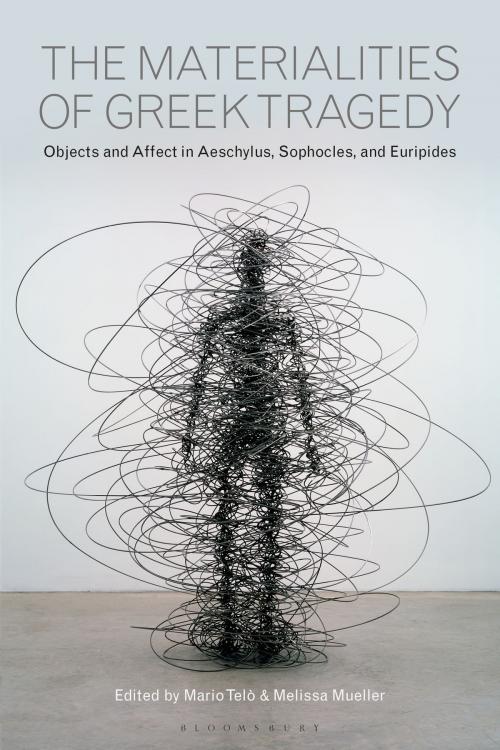The Materialities of Greek Tragedy
Objects and Affect in Aeschylus, Sophocles, and Euripides
Nonfiction, Entertainment, Drama, Greek & Roman, Fiction & Literature, Literary Theory & Criticism, History| Author: | ISBN: | 9781350028814 | |
| Publisher: | Bloomsbury Publishing | Publication: | June 14, 2018 |
| Imprint: | Bloomsbury Academic | Language: | English |
| Author: | |
| ISBN: | 9781350028814 |
| Publisher: | Bloomsbury Publishing |
| Publication: | June 14, 2018 |
| Imprint: | Bloomsbury Academic |
| Language: | English |
Situated within contemporary posthumanism, this volume offers theoretical and practical approaches to materiality in Greek tragedy. Established and emerging scholars explore how works of the three major Greek tragedians problematize objects and affect, providing fresh readings of some of the masterpieces of Aeschylus, Sophocles, and Euripides.
The so-called new materialisms have complemented the study of objects as signifiers or symbols with an interest in their agency and vitality, their sensuous force and psychosomatic impact-and conversely their resistance and irreducible aloofness. At the same time, emotion has been recast as material “affect,” an intense flow of energies between bodies, animate and inanimate. Powerfully contributing to the current critical debate on materiality, the essays collected here destabilize established interpretations, suggesting alternative approaches and pointing toward a newly robust sense of the physicality of Greek tragedy.
Situated within contemporary posthumanism, this volume offers theoretical and practical approaches to materiality in Greek tragedy. Established and emerging scholars explore how works of the three major Greek tragedians problematize objects and affect, providing fresh readings of some of the masterpieces of Aeschylus, Sophocles, and Euripides.
The so-called new materialisms have complemented the study of objects as signifiers or symbols with an interest in their agency and vitality, their sensuous force and psychosomatic impact-and conversely their resistance and irreducible aloofness. At the same time, emotion has been recast as material “affect,” an intense flow of energies between bodies, animate and inanimate. Powerfully contributing to the current critical debate on materiality, the essays collected here destabilize established interpretations, suggesting alternative approaches and pointing toward a newly robust sense of the physicality of Greek tragedy.















